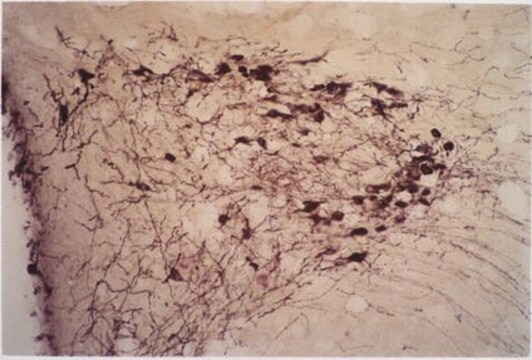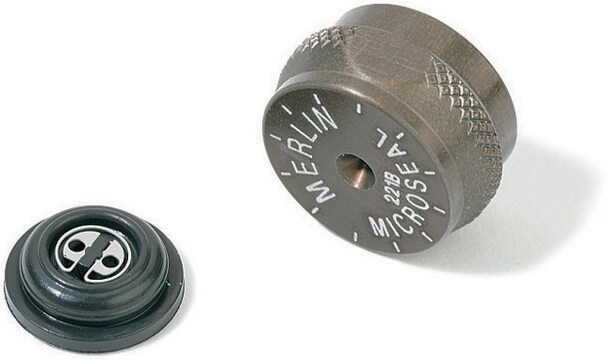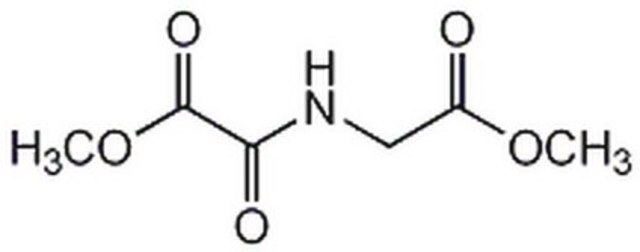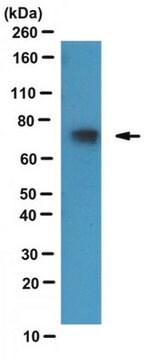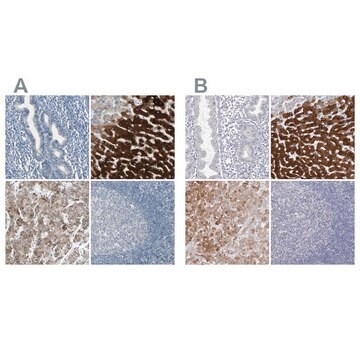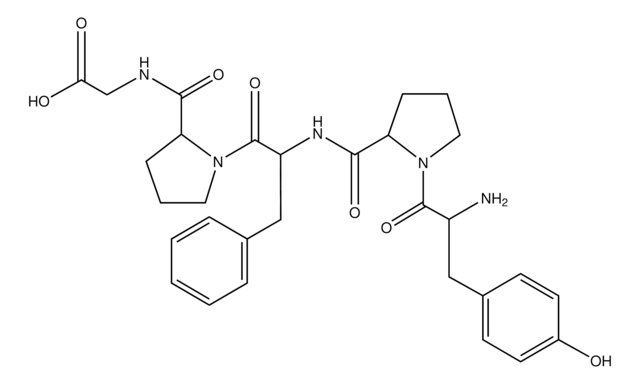MABE227
Anti-FTO Antibody, clone 5-2H10
clone 5-2H10, from mouse
Sinonimo/i:
Alpha-ketoglutarate-dependent dioxygenase FTO, Fat mass and obesity-associated protein
About This Item
Prodotti consigliati
Origine biologica
mouse
Livello qualitativo
Forma dell’anticorpo
purified immunoglobulin
Tipo di anticorpo
primary antibodies
Clone
5-2H10, monoclonal
Reattività contro le specie
human, rat
tecniche
immunohistochemistry: suitable (paraffin)
western blot: suitable
Isotipo
IgG2aκ
N° accesso NCBI
N° accesso UniProt
Condizioni di spedizione
wet ice
modifica post-traduzionali bersaglio
unmodified
Informazioni sul gene
human ... FTO(79068)
Descrizione generale
Immunogeno
Applicazioni
Epigenetics & Nuclear Function
Cell Cycle, DNA Replication & Repair
Qualità
Western Blot Analysis: 1 µg/mL of this antibody detected FTO in 10 µg of human kidney tissue lysate.
Descrizione del bersaglio
Stato fisico
Stoccaggio e stabilità
Risultati analitici
Human kidney tissue lysate
Altre note
Esclusione di responsabilità
Non trovi il prodotto giusto?
Prova il nostro Motore di ricerca dei prodotti.
Raccomandato
Codice della classe di stoccaggio
12 - Non Combustible Liquids
Classe di pericolosità dell'acqua (WGK)
WGK 1
Punto d’infiammabilità (°F)
Not applicable
Punto d’infiammabilità (°C)
Not applicable
Certificati d'analisi (COA)
Cerca il Certificati d'analisi (COA) digitando il numero di lotto/batch corrispondente. I numeri di lotto o di batch sono stampati sull'etichetta dei prodotti dopo la parola ‘Lotto’ o ‘Batch’.
Possiedi già questo prodotto?
I documenti relativi ai prodotti acquistati recentemente sono disponibili nell’Archivio dei documenti.
Il team dei nostri ricercatori vanta grande esperienza in tutte le aree della ricerca quali Life Science, scienza dei materiali, sintesi chimica, cromatografia, discipline analitiche, ecc..
Contatta l'Assistenza Tecnica.

